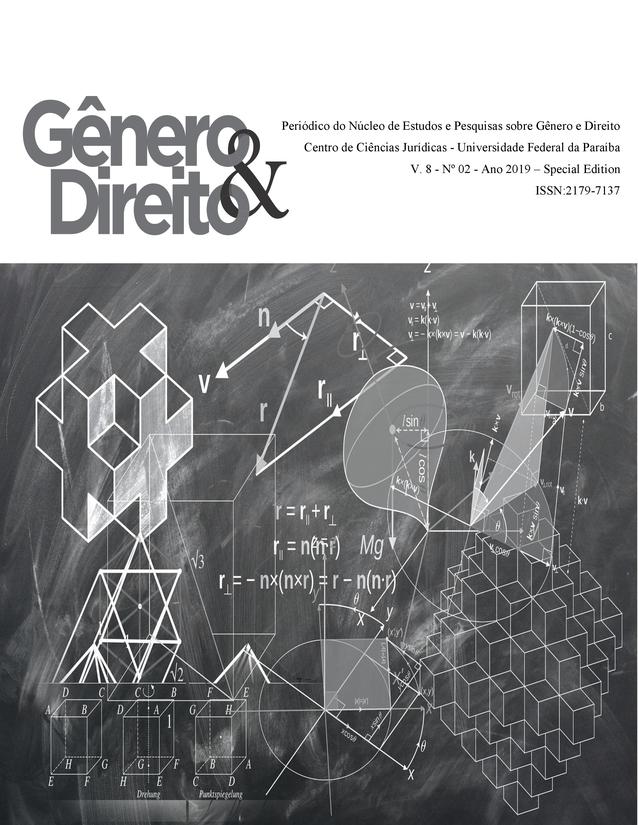A COMPARATIVE STUDY OF STIMAN'S RULE IN JA'FARI JURISPRUDENCE AND CIVIL LAW
DOI:
https://doi.org/10.22478/ufpb.2179-7137.2019v8n2.46514Palavras-chave:
Stiman, trustee, pledge, excess and deficiencyResumo
Stiman is one of the most important Fiqh rules by virtue of which, each individual by any reason becomes a trustee for property of another person will not be responsible for the loss of that property unless he has committed a mistake (whether extremes of excess and deficiency). The essence of Stiman's rule has been considered as the truth of title of an owner's deposit which in fact another one's being trustee is dependent on the property owner's permission and the religious deposit in which a person by the order of the religious order (or the legislator) becomes trustee. The Islamic Jurisprudence and civil law towards Stiman's rule in each of the contracts such as power of attorney, deposit, loan, renting, mortgage, bailment of a capital, and attending the ownership deposits which deposit description is the main base of these contracts and in religious deposits such as missed property and custody in which a profile of deposit description is observed, is in this way that the trustee in every above contracts shall not be regarded as guaranteed in case of the property loss and the owner or law has no right for seeking him the loss compensation and only in a way they can resort to him that the trustee has made extremes of excess and deficiency in it.Downloads
Referências
Ibn Hamzeh Toosi, M, (1987). Al-Vasila Ela Nil Al-fazilah. Qom-Iran, Ayatollah Marashi Najafi Publisher, 1st print.
Emami, SH. (2002). Civil Law. Tehran, Iran, Islamieh Publisher, 34th print.
Hosseini Maragheie, MA, (1996). Al-Anavin AlFaqihe. Qom, Iran, Islamic Office dependent on Society of Seminary Teachers of Qom, 1st print.
Helli Fakhr Al-Mohaqeqin, MBY, (1967). Izah Al-Favahed. Qom, Iran, Ismailian Institute, 1st print.
Savad Koohi Far, Sam. Laqteh. Thesis of Master's degree, Private Law, Faculty of law of Shahid Beheshti University. 1990.
Taheri, H. (1997). Civil Law. Qom, Iran, Islamic Office dependent on Society of Seminary Teachers of Qom, 2nd print.
---------- (2008). Princioles of Fiqh, Islamic Publishing Office dependent on Society of Seminary Teachers of Qom, 1st print.
Ameli, the 1st martyr, M, Al-qavaed and Al-favaed, Qom, Iran, Mofid Bookshop, 1st print.
------------ (1990). Al-lome Al-dameshqiah fi Fiqh Al-ememiah. Beirut, Lebanon, Dariaterath- Islamic Aldar, 1st print.
Gholami, G, An Attorneys Commitments, Thesis of Master's degree, Private Law, Faculty of law of Shahid Beheshti University. 2000.
Mohaqeq Helli, A, (1988), Shera Al-Islamfi Masael Alhalal and Alharam, Qom-Iran, Ismailian Institute, 2nd print.
------------- (1997). Al-Mokhtasar Alkafe Fi FIQH Al-emamieh, Qom, Iran, Almatbooat Aldinieh Institute, 6th print.
Sheikh Toosi, M, (1987) Al-Khalaf, Islamic Publishing Office dependent on Society of Seminary Teachers of Qom, 1st print.
Mousavi Bojnordi, SM. (2009). Al-Qavaed Al-Fiqhiah. Qom-Iran, Our Reasons Publishings, 4th print.
Mousavi Khomeini, SR, (1945). Tahrir Al-Vasileh, Qom, Iran, Darolelm Press Institute, 1st print.
Najafi Isfahani, S, (1984). Javaher Al-Kalam fi SHARH Sharae Islam, Beirut, Lebanon, Dar Ehya Altarath Alarabi, 7th print

